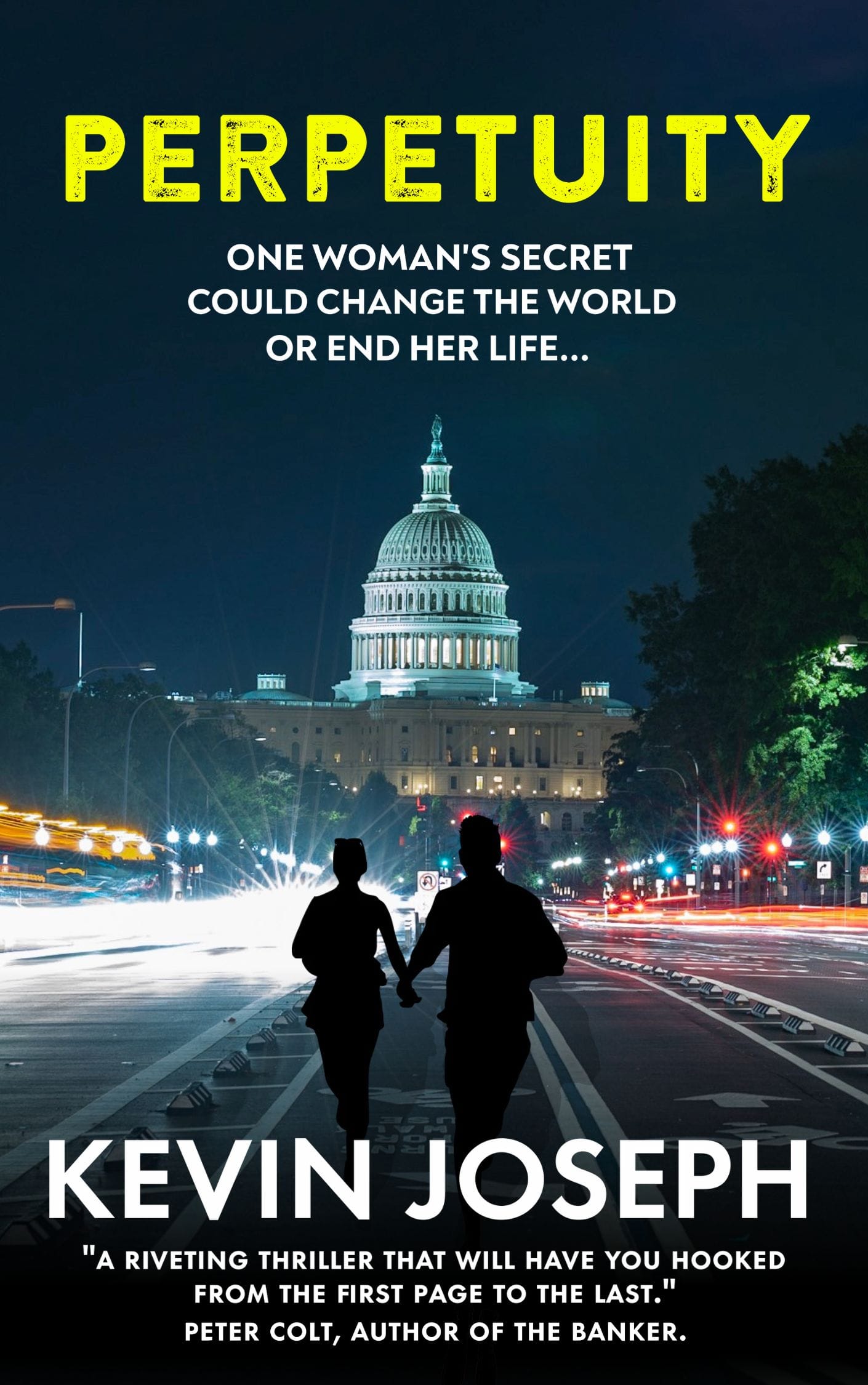I’m often asked what inspired the unusual concept for my new sci-fi thriller, Perpetuity. It’s the story of a young doctor who discovers nanobots in a mysterious woman’s bloodstream and their desperate flight from deadly enemies, eager to exploit this groundbreaking technology. Like many authors who prefer to write what they know best, I let my interest and knowledge in three domains converge to shape this novel.
I’ve always been interested in thrillers by authors like Blake Crouch, Dean Koontz, and Michael Crichton, who weave next-generation scientific ideas into today’s world. Perpetuity stems from the emerging science of nanotechnology and the potential for nanobots to transform healthcare. Nanobots are microscopic robots that can be programmed to fight diseases and make other changes at the cellular level. Crichton’s Prey introduced me to nanobots in 2002, and futurist Ray Kurzweil rekindled my interest in this fascinating technology as I brainstormed ideas for my novel.
Kurzweil foresees the rapid integration of humans and AI-controlled nanobots in the coming decades, leading to the eradication of disease, faster healing, and a significant extension of the human lifespan. Many of his other bold predictions have already come true, and human trials are underway to apply nanobots in cancer treatments. As I fleshed out the concept for Perpetuity, nanobots seemed to represent the ultimate fusion of the mechanical and biological, and their invention a milestone on the path toward a possible transhuman future.
Pursued by an aggressive and unethical company based in the Tysons Corner technology corridor outside Washington, DC, which aims to gain control of these nanobots for their military customers, Perpetuity’s protagonists, Justin and Sarah, seek refuge in New York State’s Adirondack Park. With six million acres of forest, lakes, ponds, rivers, and mountains, this vast wilderness region is the perfect place for Justin and Sarah to disappear. It also brings back fond memories of my father—a lifelong outdoorsman who passed away while I was writing the novel—and childhood summers at our family’s rustic lake house. The contrast between the unnatural, futuristic nanotechnology and the natural, primitive Adirondack environment underscores my novel’s cautionary message about unbridled technological progress. I’m not a Luddite by any means and value the advantages and inevitability of technological progress. However, I am deeply concerned about unchecked and irresponsible scientific advancements, such as artificial intelligence, especially if they enrich the upper class at everyone else’s expense.
In writing Perpetuity, my musical interests also influenced me. I started taking classical guitar lessons as a young boy and have continued to play this beautiful instrument ever since. During the pandemic shutdown, I increased my practice time, spent hours watching performances by the world’s best players, and learned more about the instrument’s history and repertoire. As I developed the backstory for Sarah, I realized that my knowledge and passion for classical guitar could be used to make her character more authentic and intriguing. Playing classical guitar might seem like an unusual profession for a thriller’s heroine, but as the story unfolds, I think you’ll agree that this timeless profession suits her perfectly.

